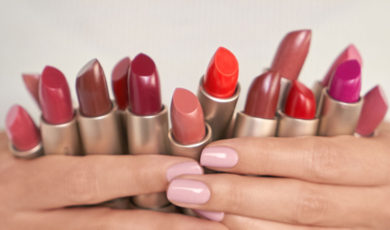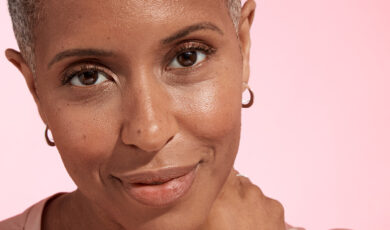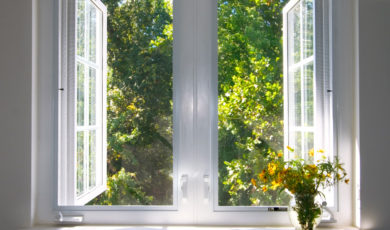The Truth About Pores

The pores on our skin get a bad reputation. We’re constantly battling with them over excess oil and fussing when they look enlarged. Sure, they can lead to rough skin or acne when not taken care of, but pores also play an integral role in the health of our skin and we can’t really survive without them. Today, with expert insight, we’re myth-busting some of the biggest pore-related misunderstandings and teaching you about the best ways to nurture them so they function well and look their best.
What Are Pores, Anyway?
In short, pores are tiny openings that exist by the millions on the surface of your skin. We have two types: sweat pores and oil pores, and each serves a pretty vital role in the functioning of our bodies.
“The sweat pore is found on the surface of the entire body and is not visible to the naked eye. On the other hand, the oil pore contains a hair follicle, and sebaceous gland that is responsible for making oil, which is also referred to as sebum,” says Heather Rohrer, a physician assistant at the Center for Aesthetic Medicine and Human Performance in Las Vegas, NV. “The sweat pore allows sweat to be released to cool down the body when its temperature begins to rise, and oil pores secrete oil to lubricate the skin as a protectant.”
It’s the pores responsible for making oil that tend to give us the most trouble, if you will, so that’s the type of pore we’re focusing on today.
Do Pores Really “Open” and “Close”?
Nope. In fact, the “open and close” thing is one of the biggest myths about pores. Rohrer says, “Pores are always open. They can, however, appear very enlarged when they are clogged with oil and debris.”
Why Do Some People Have Bigger Pores Than Others?
As with most things when it comes to our bodies, pore size ultimately boils down to what we’re born with. Some people naturally have larger pores due to genetics, oil production levels and the size of hair follicles. Pores also tend to get larger with age as damage accrues and our collagen supply depletes.
“Additionally, anything that causes skin inflammation can make pores larger. For example, pores can become inflamed with sun exposure, with chronic congestion, and with trauma from things such as overly aggressive facials,” says Dr. Arash Akhavan, a board-certified dermatologist and founder of NYC’s Dermatology and Laser Group. “Enlarged pores is a common complaint in our office since they can affect the overall smoothness and brightness of the face. It can also affect how well makeup sits on your skin.”
Can You Actually “Tighten” Your Pores?
While “tighten” isn’t the most accurate word, you can make your pores appear smaller. Pores begin to clog and enlarge if they’re not taken care of every day with the right skincare regimen — more on that later.
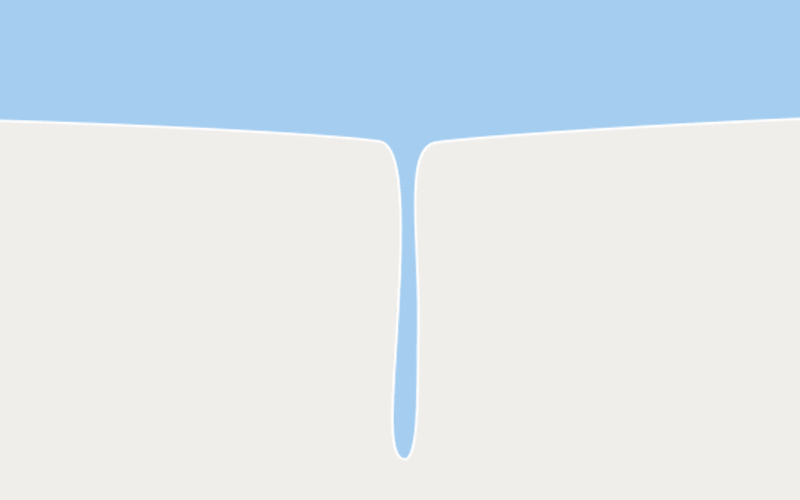
How Do Clogged Pores Develop?
Imagine a tiny hole in the ground. Over time, if it’s abandoned, it’ll fill with leaves and dirt. In the same way, pores that aren’t taken care of are susceptible to filling up with dead skin, oil, makeup, sunscreen and environmental debris. This can all harden within the pore, leading to whiteheads, blackheads and acne.
Is it Really That Bad to Squeeze Your Own Pores?
One of the worst things you can do for pores is to cause trauma when trying to clean them out, says Dr. Akhavan. This includes trying to squeeze out accumulated gunk, whether it’s done by yourself or by a physician. “No matter what method you use to clean out your pores, any relief you get from congestion is just temporary,” he says. “Make sure you are being gentle so that you don’t make the pore size larger.”
Of course, professional extractions of hardened blackheads (sometimes referred to as plugs) can be helpful in clearing congestion. This should be done by an aesthetician or dermatologist though, since they have a firm understanding of which plugs are ready to be removed and how they ought to be extracted. Doing it yourself can lead to permanent scarring or damage.
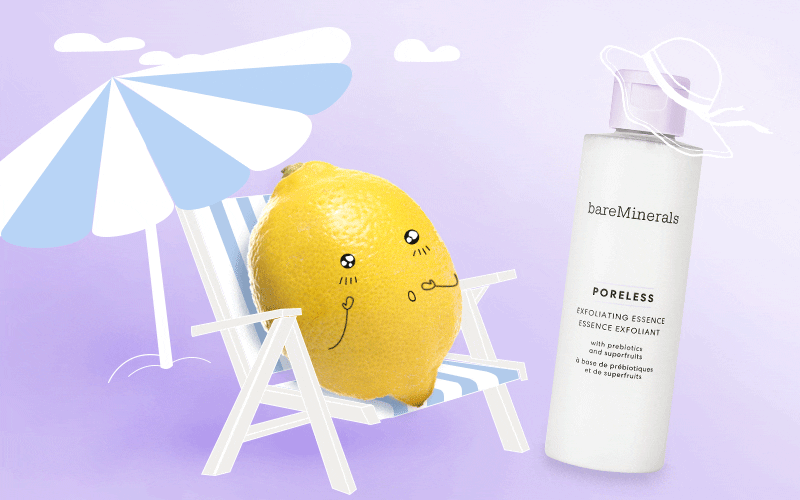
What’s the Best Way to Take Care of Pores on the Daily?
Instead of torturing yourself with a painful squeeze session, aim for gentle daily care and monthly or bi-monthly facials.
“To keep those pores appearing small, it is important to maintain a healthy skincare regimen. I recommend a daily exfoliant to keep your skin looking clean, antioxidants, a good moisturizer for you skin type, and never forget the sunscreen,” says Rohrer. “Exfoliating the skin helps remove the built-up oil and debris and, in return, makes the pore look smaller.”
Exfoliation may sound physical, but it doesn’t have to be — our PORELESS Exfoliating Essence is designed for daily use, acting as a naturally derived micropeel to help gently remove dead skin cells and reduce excess oil production with prebiotics and fruit acids. With consistent use, it’ll help pores look smaller, and skin look smoother and more supple. It can be used in conjunction with the PORELESS Oil-Free Moisturizer, a lightweight hydrator that doubles down on pore refining with the same ingredients. It’s especially great for those who already have oily-prone or acne skin since it won’t weigh your skin down with additional oils. For an added bonus of radiance and skin-strengthening, you can apply a few pumps of SKINLONGEVITY Serum all over your face before applying your moisturizer.
There are a couple other things you can do that’ll help keep your pores clearer and, as a result, your skin looking smoother and more luminous. For starters, Dr. Akhavan advises that “mineral-based foundations are great.” Whatever makeup you use, it’s important to clean your face as soon as possible after excessive sweating or in very high humidity. “This is because moisture from sweat or the environment can mix with makeup and form little concretions in the pores that leads to skin inflammation,” he says. As for which type of cleanser to use, PORELESS Clay Cleanser is a creamy, clay-based cleanser that’s specifically formulated to help minimize the look of pores (thanks to the same superfruit acids and prebiotics in the entire collection), and to help reduce excess oil and shine without stripping or overdrying.
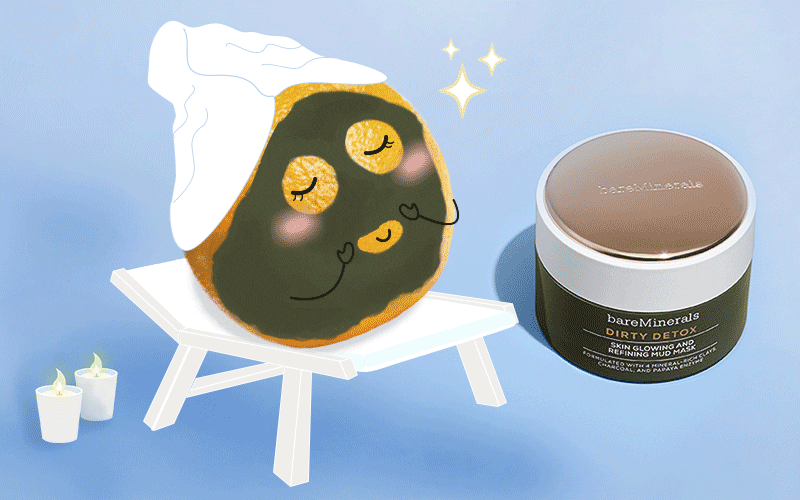
How To Do a DIY Facial When You Can’t Get to The Spa
If you can’t get to the spa or your dermatologist for a monthly or bi-monthly facial, Dr. Akhavan says that one of the best things you can do is apply a charcoal mask to your skin, like our bareMinerals DIRTY DETOX Skin Glowing and Refining Mud Mask. The charcoal effectively draws out impurities and helps soaks up the excess oil sitting in your pores for a glowy and smooth complexion.
The bottom line is that pores may seem like a drag, but they are important in the overall health of our skin and bodies. The key is to take care of them with a consistent, gentle skincare regimen and, in turn, they’ll do what they need to do, without stealing the show.

